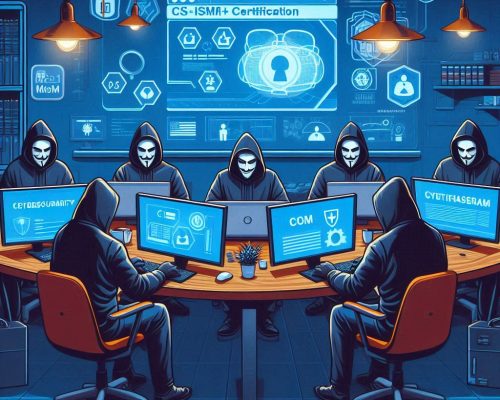Certified in Cybersecurity:Entry to a different world Certification

Cybersecurity Fundamentals
Cybersecurity Fundamentals constitute the foundation of any security training program. In Right Turn Security, we have a thorough security principle, attack vector, and risk management plan understanding. Python programming is part of our training to automate security operations, find vulnerabilities, and strengthen system defenses so that the professionals are enabled with hands-on skills to counter cybersecurity issues.
Through this training, students will be equipped with information on cybersecurity legislation and policies, ethical hacking methodologies, and digital environments best practices for securing them. The training includes learning areas such as social engineering attacks, malware analysis, and incident response techniques. Learning cybersecurity fundamentals allows one to be able to prevent, detect, and respond to cyber attacks across different sectors.
Network Security
Network Security is essential for safeguarding an organization’s IT infrastructure against unauthorized access and cyber attacks. Our training program teaches firewalls, intrusion detection systems, and network segmentation methods. With Python, students will automate network security processes, analyze network traffic, and identify anomalies in real-time, enhancing their skills to secure digital environments.
Along with automation, the course also discusses Virtual Private Networks (VPNs), Secure Sockets Layer (SSL) encryption, and endpoint security controls. Students will learn hands-on from Python scripts to scan network logs, identify possible breaches, and improve overall network security. Through the expertise in network security, professionals can protect corporate networks from cybercriminals and minimize the dangers that come with data breaches.

Cryptography Basics
Cryptography Fundamentals encompass the protection of information by means of encryption and hashing. We illustrate how libraries in Python are utilized to realize cryptographic functions that guarantee secure storage and transfer of data during training. Students will learn encryption methods, digital signatures, and best practices in managing keys for guarding sensitive information from cyber attacks.
Symmetric and asymmetric encryption methods, hash algorithms, and public key infrastructure (PKI) are covered in this course. Practical exercises will give learners hands-on experience with encrypting sensitive information, creating cryptographic keys, and putting authentication mechanisms into practice. By learning these, cybersecurity experts are able to protect against unauthorized access and data compromise and ensure that industry standards are complied with.


Security Best Practices
Security Best Practices are essential for maintaining a strong cybersecurity posture. Our training emphasizes Python-based automation for enforcing security policies, performing regular security assessments, and strengthening system defenses. Professionals will gain hands-on experience in implementing security protocols and mitigating risks through proactive security measures.
The training includes security frameworks like NIST, ISO 27001, and CIS controls, and teaches learners optimal practices for safeguarding IT environments. Participants will also learn secure coding practices, security patch management, and identity and access management (IAM) strategies. Professionals can strengthen organizational cyber defense by adopting these security best practices.
Overview of the Training
Right Turn Security provides a unique Certified in CyberSecurity training course that combines Python programming with fundamental cybersecurity principles. The course is intended to provide learners with the technical expertise required to analyze, detect, and counter security threats in real-world settings. Our curriculum is designed to offer both theoretical foundations and hands-on experience, allowing learners to apply what they have learned to real-world cybersecurity issues.
With an emphasis on learning by doing, the course comprises lab activities, case studies, and interactive quizzes. Students will practice cybersecurity scenarios of ethical hacking, penetration testing, and malware analysis with Python. The curriculum is made for accessibility to beginners and has advanced topics for those who want to specialize in cybersecurity.
Future Career Scope

